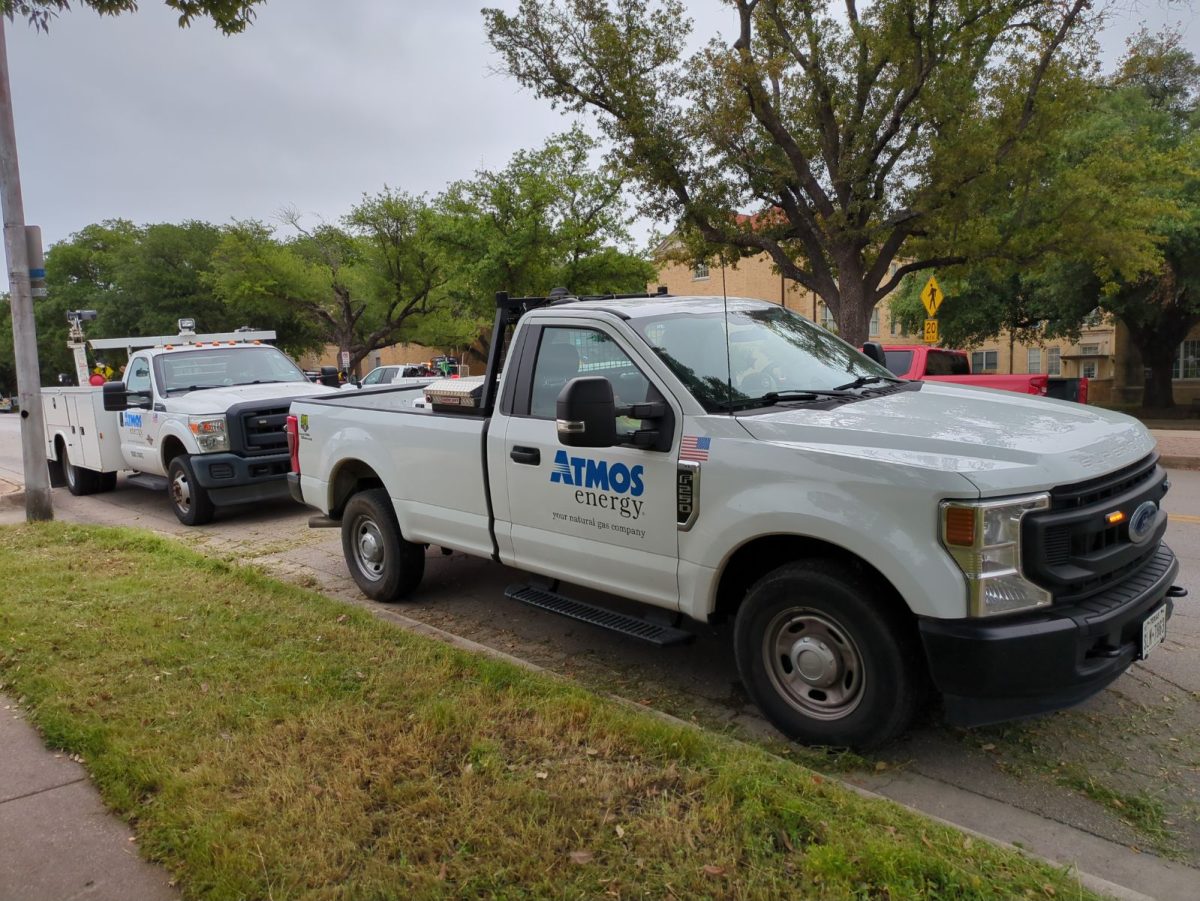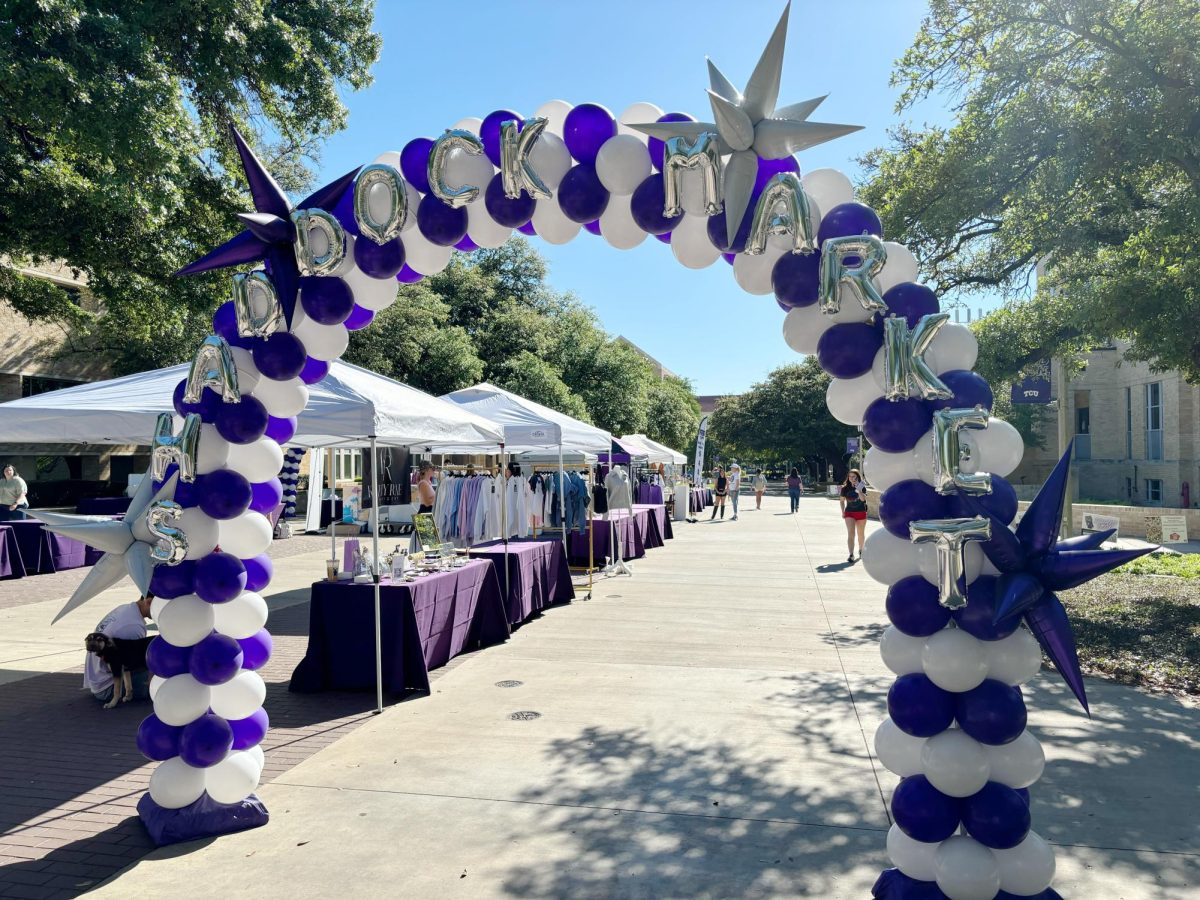Four panelists spoke in a discussion on sex trafficking Monday night in the second installment of the Think Global series.
The panel was made up of Dr. Vanessa Bouché, an assistant professor of political science; Tayebeh Asadi, from the Institute of International Education Rescue Scholar in Iran; Melissa Ice, the founder and executive director of theNET, a nonprofit aimed at helping impoverished residents of Fort Worth; and Sana Syed, the founder and president of Kimiya International.
Discovering Global Citizenship and the Bob Schieffer College of Communication are co-presenters of the Think Global discussions, aimed at addressing urgent international issues.
Dr. Catherine Coleman, an associate professor of strategic communication, said there was a natural progression from the previous panel on Syrian refugees to that on sex trafficking.
“We felt a sense of urgency around some of the issues,” Coleman said, “particularly after the conversation that we had about the Syrian Refugee Crisis. When you have groups of people who are put in vulnerable situations like that, they’re opened up to all kinds of possibilities. So that was kind of a natural flow into this discussion.”
The panelists discussed the industry of sex trafficking in both the DFW area and globally, as well as the surrounding policy and ways to combat it.
The commercial sex industry is particularly lucrative.
In Houston, Asian massage parlors alone are bringing in an estimated $100 million each year, Bouché said. She added these commercial sex operations open side businesses to help launder the enormous amount of cash flow.
Influential members of the community facilitate the corrupt financing behind the industry, Bouché said.
“You have to think about who has the money to pay $60 for 15 minutes [of a sex act],” she said. “These are mostly upper middle-class people, with good jobs, usually married men, usually with children, usually professionals. These also happen to be the people who make most of our policy.”
Corruption goes beyond the financial realm.
These influential people also help keep policy agenda away from the commercial sex industry, Ice said.
Bouché said there are instances where government agents directly aid the industry as well.
The panel concluded with ways for students and community members to help combat the industry, such as taking Bouché’s human trafficking class or getting involved in the International Justice Mission.
The International Justice Mission is a nonprofit organization focused on educating and creating awareness about human trafficking.
TCU’s chapter of IJM is in its first year and has held fundraiser events, screened documentaries and held volunteer training for nonprofit organizations like theNET and Traffick911, said Maddie Bailey, the president of IJM.
“I got involved with a few different organizations here that fight trafficking in Texas,” Bailey said. “Up until that point, I’d always seen human trafficking as a developing world problem.
“At that point, I saw it as an issue that once compassionate people that exist everywhere on campus learn about what happens right here in Fort Worth, it’s something they won’t be able to turn away from.”




